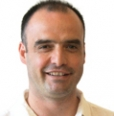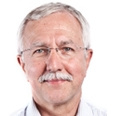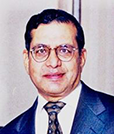13 June 2013
View Webinar Content
Presentation: Introduction to the webinar and panelists
Presentation—Breaking through the Information Barrier: Webinar Series for Industrial Excellence
Screenshots from the Industrial Efficiency Technology Database
Transcript—Webinar audio transcript
In recent years, policymakers and academics have considered the question, “If energy efficiency is such a good solution for skyrocketing GHG emissions and shrinking profits, why is it not being widely adopted by industry?” Many have identified the lack of access to quality information as one of the greatest barriers to its adoption.
In an effort to help overcome this barrier, the Clean Energy Solutions Center, in partnership with the Institute for Industrial Productivity (IIP), offered this webinar on how to allow the free flow of information on industrial energy efficiency between governments, industry and the financial sector. The webinar content:
- Explores ways to make reliable information on technology and practices freely available to industry
- Investigates how policymakers can use it to drive industry implementation
- Examines how the financial community might use it in loan applications
- Discusses the role of independent collection of information in rectifying information asymmetries, particularly in regard to the energy and GHG performance of various technologies and relationships between industrial companies and equipment suppliers
- Covers IIP’s Industrial Efficiency Technology Database (IETD).
Panelists
 Murat Mirata, Technical Manager, IIP
Murat Mirata, Technical Manager, IIP
Murat Mirata serves as the Technical Manager consultant to the Institute for Industrial Productivity. Since 1996, Murat has assisted numerous private companies and public authorities to develop and implement resource efficiency programmes and/or sustainable development strategies. His specific areas of expertise include (1) Implementing energy efficiency, water efficiency and waste minimisation programmes in industrial, commercial, institutional and residential establishments; (2) Assisting integration among different industries and among energy provision, waste management, mobility, and sewage infrastructure so as to improve regional resource use effectiveness and efficiency - industrial symbiosis networks; (3) Clean technology identification and assessment for industry and for investors ; (4) Development of sustainability strategies for companies and regions.
Development and delivery of educational programmes. Murat holds a M.Sc. degree on environmental engineering (Middle East Technical University, Ankara, Turkey) and M.Sc. and Ph.D. degrees on Environmental Management and Policy (Lund University, Sweden).
 Ernst Worrell, Energy and Resources Professor, Utrecht University
Ernst Worrell, Energy and Resources Professor, Utrecht University
Ernst Worrell is a professor of ‘Energy, Resources & Technological Change’ at Utrecht University (since 2008). From 2004 until 2010 he was the Director of Energy Use & Efficiency at Ecofys, an international sustainable energy consulting company. He was also a staff scientist at Lawrence Berkeley National Laboratory from 1998 to 2008, leading the industrial energy assessment research. Until 1998, he co-led the energy and material efficiency group at the Department of Science, Technology and Society of Utrecht University, in The Netherlands. Dr. Worrell was a visiting scientist at the Center for Energy and Environmental Studies at Princeton University (USA) in 1994-1995, and a visiting professor at the Universidade de Sao Paulo, Brazil, in 1996. Ernst Worrell brings over 20 years experience in research and evaluation projects in industrial energy and material efficiency improvement, as well as waste management and processing. He has worked with chemical, oil refining, pulp and paper, iron and steel, cement, glass, food and many other industries around the globe. He is author of 4 IPCC reports, including the 4th Assessment Report and is the (co-) author of over 300 publications. He is Editor-in-Chief of the peer-reviewed journal Resources, Conservation and Recycling, one of the leading journals in the field of resources efficiency, and associate editor of Energy, the International Journal and Energy Efficiency. He is also an editorial board member of Waste Management.
 Jean-Francois Sautin, Energy Efficiency Consultant and former senior manager at Lafarge
Jean-Francois Sautin, Energy Efficiency Consultant and former senior manager at Lafarge
A graduate of France’s Ecole des Mines (Nancy 1970), and Carnegie Mellon University (Master of Sciences 1971), Jean-François Sautin joined the Lafarge Group in 1972, where he has developed his entire career, until retirement in May 2011. His work has spanned eleven operational and functional roles in France, the UK, Canada, USA and Turkey. A Senior Vice-President for the past twelve years, he has managed the technical organisation of the Cement Division, headed Lafarge Cement in the UK, and lastly led Internal Audit for the Group. Sustainable Development issues have been an area of personal interest throughout, from a Master’s thesis on environmental issues, through leading the British Cement Association’s work on carbon trading and other environmental challenges, and supporting Lafarge’s SD programs through dedicated process audits.
 Arvind Thekdi, President, E3M
Arvind Thekdi, President, E3M
Dr. Thekdi has over 40 years of experience in energy use and efficiency improvement related activities for all major industries. During his career he has worked with large industries and SMEs in various parts of the world including USA, China, and India etc. Dr. Thekdi has conducted several technology related studies and provided consulting services to industries and governments in several countries in North America, Central America, Asia and Europe He has developed, designed and applied industrial thermal (heating and cooling) systems, waste heat recovery systems and Green House Gases (GHG) reduction systems for heating equipment. He has contributed to development of several energy efficiency tools such as PHAST that allow assessment of current energy use, benchmarking and potential improvements with application of best practices for thermal systems used in manufacturing. Dr. Thekdi has participated in development of energy efficiency standards and offered training programs for implementation of energy systems optimization in industries and SMEs. He holds 25 U.S. and foreign patents related to thermal processes and equipment. He has published more than 50 technical papers and contributed to two books in the area of combustion, process heating and application of improved technologies in industries.
